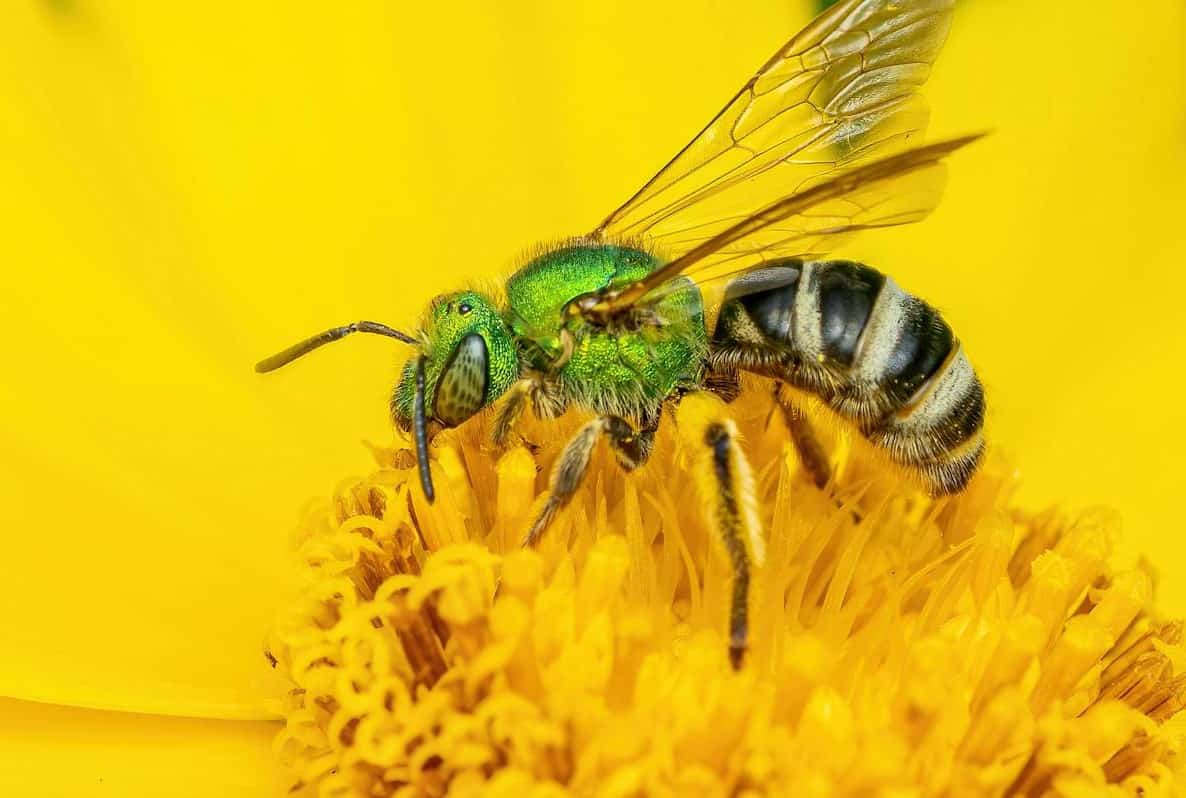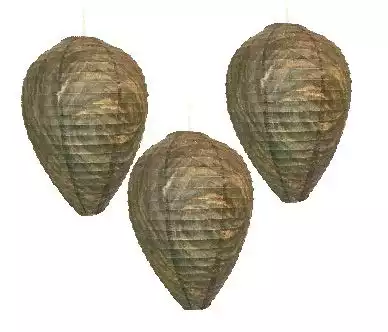Wasps can be pesky and even dangerous. Their stings can cause pain, swelling, and, in some cases, severe allergic reactions.
However, you don’t have to resort to harsh chemicals or traps to keep wasps at bay. Nature has provided us with a solution: wasp-repellent plants.
In this blog post, we’ll explore some of the best wasp-deterrent plants and how to incorporate them into your outdoor landscape. By the end, you’ll have a safer, more peaceful outdoor space without having to resort to harmful chemicals.
Types of Wasps
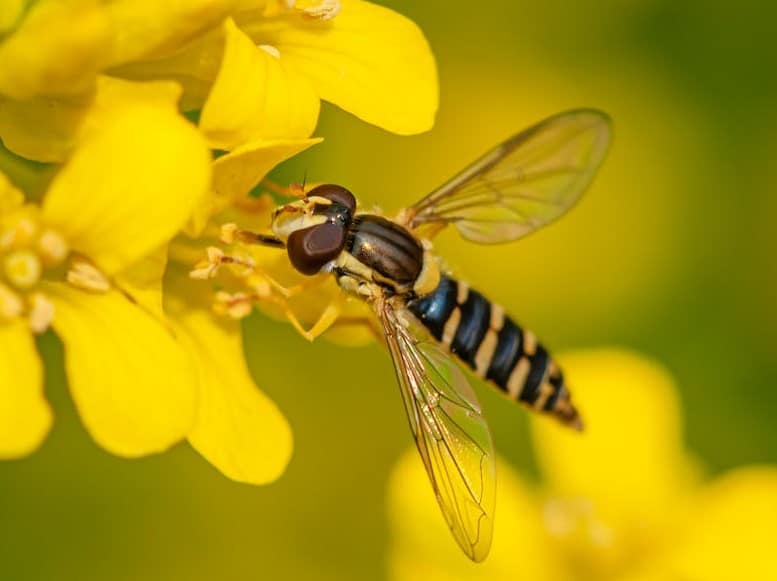
Wasps come in a variety of shapes and sizes. The most common types include yellow jackets, paper wasps, and hornets.
Yellow jackets are black and yellow with a hairless, shiny body and are often seen near garbage cans or other sources of food.
Paper wasps are slender with black, brown, or reddish bodies and build small, open-celled nests that resemble paper.
Hornets are the largest of the three and are black or brown with white, orange, or yellow stripes. They build large, enclosed nests and are often found in trees or shrubs.
While most wasps are capable of stinging, yellow jackets and hornets are generally more aggressive. Their stings can be more harmful than paper wasps.
What Plants Repel Wasps?
If you’re looking for a natural and effective way to repel wasps, consider using plants that they dislike. These natural repellents can create a wasp-free home and garden.
There are several plants that are effective in keeping wasps away. Below are some of the best wasp-repellent plants.
Peppermint

One of the best plants that bees and wasps seem to dislike is Peppermint. This fragrant herb is known for its ability to repel a variety of insects, including wasps.
Plant it around your outdoor living areas, or use it in pots to keep wasps away.
Eucalyptus
Eucalyptus is another plant that repels wasps. The strong scent of eucalyptus is unappealing to many insects, including wasps.
You can plant eucalyptus trees or use eucalyptus oil in diffusers or sprays to keep wasps away.
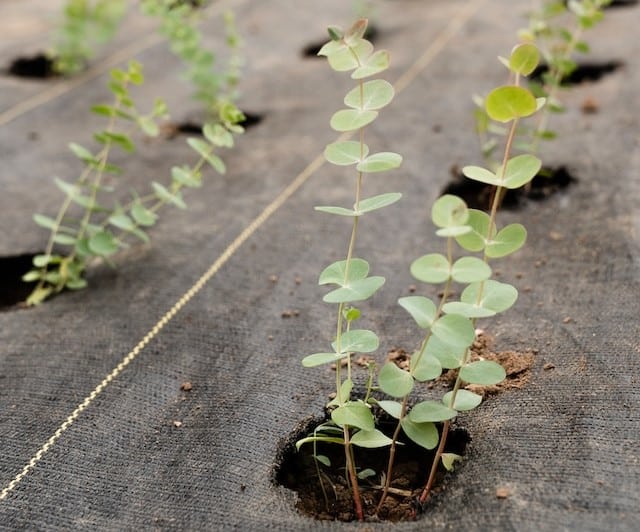
Citronella Grass
Citronella is a well-known insect repellent and can also help deter wasps.
Plant it in pots or use citronella candles or oil to create a wasp-free zone in your outdoor living areas.
Lemongrass
The lemony scent of lemongrass is another effective way to repel wasps.
Planting lemongrass around your outdoor seating areas would keep wasps away and repel insects too.
Basil
Basil is a versatile herb that is not only delicious in cooking but can also repel wasps.
Plant basil in pots or use it in cooking and enjoy a wasp-free space. Growing basils requires well-draining soil under direct sunlight.

Red Geraniums
These bright flowers are not only beautiful but can also help repel wasps. Plant them in pots or in your garden to keep wasps away.
Pennyroyal
The Pennyroyal is a flowering plant from the mint family. Crushed fresh leaves of pennyroyals have very strong fragrances that wasps hate. This natural repellent plant grows well in moist soil.
There are other plants that help repel wasps, like common thyme, marigolds, wormwood, cucumber, and many others. Planting these plants in your gardens is a sure way to deter wasps.
To make the most of these natural repellents, it’s important to use them effectively.
You can plant them around your outdoor living areas or use them in pots on your patio or deck. The plant’s pungent scent alerts bees, wasps, and many pests and necessarily ward them away.
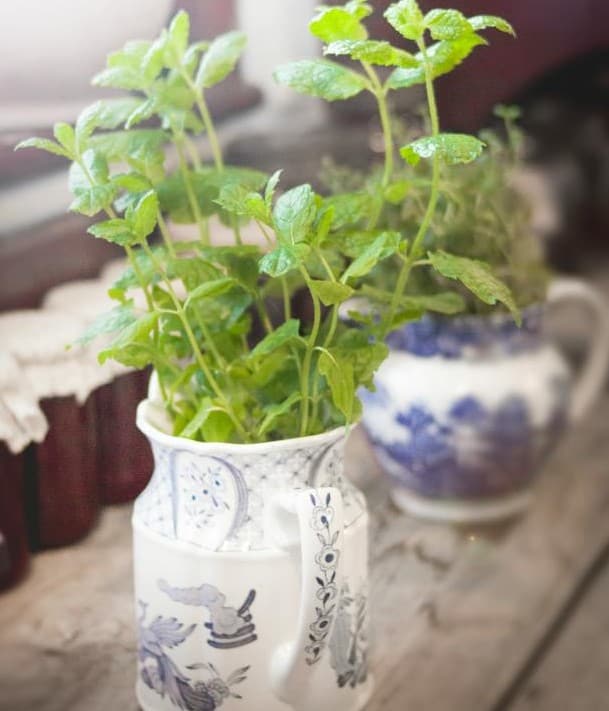
You can also use essential oils derived from these plants in diffusers or sprays to create a barrier that keeps wasps away.
In addition to being effective against wasps, these plants can also add beauty and fragrance to your lawn and garden. By growing plants that repel wasps, you can enjoy a safer and more enjoyable outdoor living experience.
Other Natural Methods for Repelling Wasps
In addition to using plants to repel wasps, there are other natural methods you can try to keep these stinging insects away.
Here are some additional ways to naturally repel wasps:
Hanging fake wasp nests
Wasps are territorial and will avoid building their nests near another colony.
By hanging a fake wasp nest in your outdoor area, you can trick wasps into thinking that there is already a colony in the area, which will deter them from building their own nest.
Making own wasp traps
You can create your own wasp traps using simple household items like soda bottles or mason jars.
Fill the container with a sweet liquid like soda or any juice with a fruity scent. Add a small amount of dish soap for a slippery surface.
Wasps will be attracted to the liquid and will become trapped inside the container.
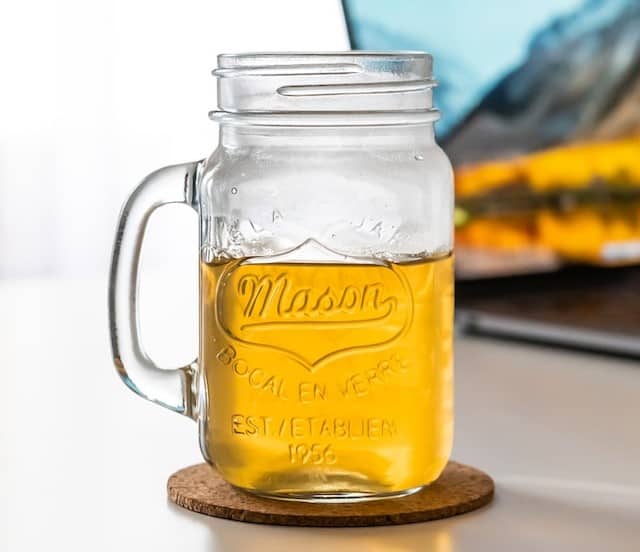
Using essential oils or vinegar sprays
Certain powerful essential oils, such as peppermint, clove, and lemongrass, are known to repel wasps. You can create your own natural spray by mixing these oils with water and spraying the solution where wasps stay.
Similarly, a vinegar-and-water spray can also be effective at repelling these insects.
Keeping your outdoor eating areas clean
Wasps are attracted to sweet foods and sugary drinks. So, it’s also important to keep your outdoor eating areas clean and free of any spills or leftovers.
Use lids, cloths, or plastic wrap to seal containers, and avoid leaving any food or drinks out in the open. Be sure to dispose of any trash promptly.
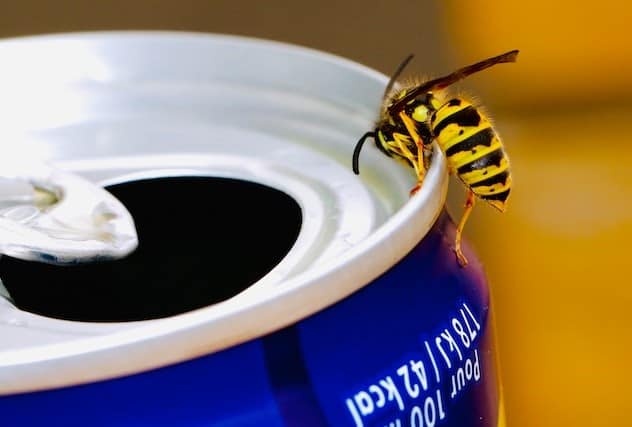
Keeping your garbage cans sealed
Wasps are also attracted to garbage, so make sure your trash cans are always tightly sealed.
This will not only help keep wasps away but will also discourage other pests like raccoons and squirrels.
Avoiding wearing bright colors and floral patterns
Bright colors and floral patterns attract wasps. These pesky wasps associate them with flowers and colorful plants.
If you want to avoid drawing stinging pests to you, stick to neutral colors and solid prints when dressing for outdoor activities.
Being mindful of your movements
Wasps can become agitated and aggressive if they feel threatened. Avoid making sudden movements or loud noises that could startle them, and keep a safe distance from their nests.
Incorporate these additional methods for repelling wasps and other flying insects into your outdoor routine. Create a safe and comfortable space for you and your guests, and avoid wasp stings.
But remember, wasps play an important role in our ecosystem, so if possible, try to avoid harming them. Instead, focus on repelling them from your outdoor living areas.
Be patient and persistent with these methods, as it may take some time to see results. If you’re still having trouble with wasps, consider reaching out to a professional pest control service for assistance.
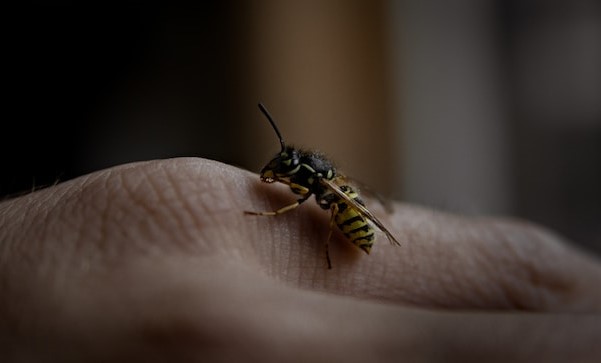
Final Thoughts
We have just explored various natural methods for keeping wasps away. From planting specific herbs and flowers to hanging fake wasp nests and using essential oils, there are many effective ways to keep these stinging insects at bay.
By incorporating these natural methods to prevent wasps from hanging around, you can enjoy a safer and more peaceful environment without the use of harmful chemicals or pesticides. Remember always to take precautions when dealing with wasps and seek professional help if necessary.
We encourage you to try out these natural methods to repel yellow jackets, wasps, and other insects. See what works best for you. Whether you’re hosting a backyard barbecue or simply enjoying a quiet evening outside, these methods can help to ensure that wasps won’t be a bother.
We hope that this blog post has been helpful in your quest for a wasp-free outdoor space.
Did You Miss These Beekeeping Posts?
